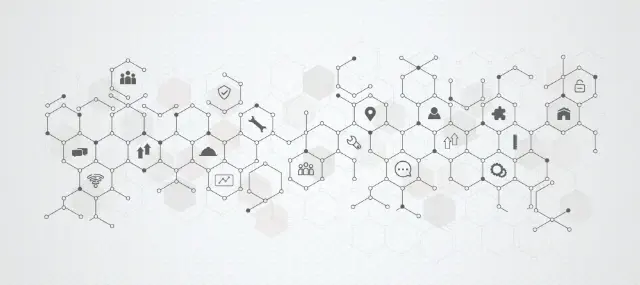Streamline Your Retail Finance with Intelligent Reconciliation and Financial Reporting Automation
In the fast-paced retail industry, efficient and accurate financial reporting is crucial for informed decision-making and maintaining compliance. However, manual reconciliation and financial reporting processes can be time-consuming, error-prone, and susceptible to human error.
Embrace the Power of Automation
Fortunately, advancements in technology, such as Python, AI, and cloud-based solutions, have revolutionized the way retail businesses handle reconciliation and financial reporting. Automation streamlines these processes, reduces errors, and frees up valuable time for finance teams to focus on strategic initiatives. By leveraging the power of automation, retailers can gain a competitive edge and improve their overall financial performance.

The Power Trio: Python, AI, and Cloud for Reconciliation and Financial Reporting Automation
Unattended Bots: The Workhorses of Automation
Python, with its robust libraries and ease of use, is the ideal language for developing unattended bots for reconciliation and financial reporting automation. These bots can perform repetitive tasks autonomously, 24/7, without human intervention. They can be programmed to match invoices with payments, reconcile bank statements, update general ledger entries, and generate financial reports, ensuring accuracy and efficiency.
Attended Bots: Empowering Human Finance Teams
Attended bots, also built with Python, assist human finance teams in completing tasks more quickly and accurately. They can provide real-time guidance, automate data entry, and flag potential errors. The level of customization available in Python allows businesses to tailor attended bots to their specific needs, enhancing productivity and reducing the risk of human error.
Cloud Platforms: The Orchestration Hub
Cloud platforms offer a comprehensive suite of features and capabilities that far surpass traditional RPA/workflow tools. They provide a centralized platform for managing and orchestrating automation processes, ensuring seamless integration with existing systems and applications. Cloud platforms also enable businesses to scale their automation efforts effortlessly, accommodating growing data volumes and complex financial reporting requirements.
AI: The Edge-Case Solver
AI techniques, such as image recognition, natural language processing (NLP), and generative AI (Gen AI), can significantly enhance the accuracy and efficiency of reconciliation and financial reporting automation. AI algorithms can identify and handle edge cases that may be missed by traditional rule-based automation, ensuring comprehensive and reliable financial reporting.
For instance, AI-powered bots can analyze unstructured data, such as scanned invoices or handwritten notes, to extract relevant information and automate data entry. NLP algorithms can process complex financial text, such as contracts or legal documents, to identify key terms and clauses, streamlining the review and analysis process. Gen AI can generate narratives and insights from financial data, providing valuable decision support to finance teams.

Building the Automation: A Step-by-Step Guide
Sub-Process Automation with Python and Cloud
1. Invoice Matching:
- Use Python to extract data from invoices, such as invoice number, date, amount, and vendor information.
- Integrate with a cloud-based OCR service to process scanned invoices and extract text data.
- Match invoices to payments using fuzzy matching algorithms or AI-powered image recognition.
2. Bank Statement Reconciliation:
- Connect to bank accounts via cloud-based APIs to retrieve bank statements in electronic format.
- Use Python to parse bank statement data and identify transactions.
- Reconcile bank transactions with recorded payments and receipts.
3. General Ledger Updates:
- Integrate with the accounting system via cloud-based APIs.
- Use Python to generate journal entries and post them to the general ledger.
- Ensure data integrity and compliance with accounting standards.
Data Security and Compliance in Retail
Financial data is highly sensitive, and retailers must prioritize data security and compliance. Python and cloud platforms offer robust security features, such as encryption, access controls, and audit trails, to protect data from unauthorized access and breaches.
Python vs. No-Code RPA/Workflow Tools
While no-code RPA/workflow tools offer a low-code/no-code approach, they may lack the flexibility and scalability required for complex reconciliation and financial reporting automation. Python, on the other hand, provides:
- Greater control and customization
- Ability to handle complex data structures and edge cases
- Seamless integration with cloud platforms and AI algorithms
Algorythum’s Approach: Client-Centric Automation
Algorythum takes a client-centric approach to automation, recognizing the limitations of off-the-shelf platforms. Our Python-based solutions are tailored to each client’s unique needs, ensuring optimal performance and scalability. We prioritize:
- Customization: Adapting automations to specific business processes and requirements.
- Efficiency: Optimizing automations for speed and accuracy.
- Support: Providing ongoing support and maintenance to ensure smooth operation.
By partnering with Algorythum, retailers can harness the power of Python and cloud automation to streamline their reconciliation and financial reporting processes, improve data security and compliance, and gain a competitive edge in the retail industry.

The Future of Reconciliation and Financial Reporting Automation
The future of reconciliation and financial reporting automation is bright, with emerging technologies promising even greater efficiency and accuracy. Here are some potential possibilities:
- Blockchain Integration: Blockchain technology can provide a secure and transparent platform for automating reconciliation and financial reporting processes across multiple parties, eliminating the need for manual reconciliation.
- Machine Learning: Machine learning algorithms can be used to analyze financial data and identify patterns and anomalies, improving the accuracy of reconciliation and providing insights for better decision-making.
- Robotic Process Automation (RPA): RPA bots can be deployed to automate repetitive tasks, such as data entry and validation, freeing up finance teams to focus on more strategic initiatives.
Subscribe to Algorythum
Stay ahead of the curve by subscribing to our blog for the latest industry-specific automation updates and insights.
Contact Us
Contact our team today for a free feasibility and cost estimate for your custom reconciliation and financial reporting automation requirements. Let us help you unlock the full potential of automation and transform your finance operations.

Algorythum – Your Partner in Automations and Beyond
At Algorythum, we specialize in crafting custom RPA solutions with Python, specifically tailored to your industry. We break free from the limitations of off-the-shelf tools, offering:
- A team of Automation & DevSecOps Experts: Deeply experienced in building scalable and efficient automation solutions for various businesses in all industries.
- Reduced Automation Maintenance Costs: Our code is clear, maintainable, and minimizes future upkeep expenses (up to 90% reduction compared to platforms).
- Future-Proof Solutions: You own the code, ensuring flexibility and adaptability as your processes and regulations evolve.









